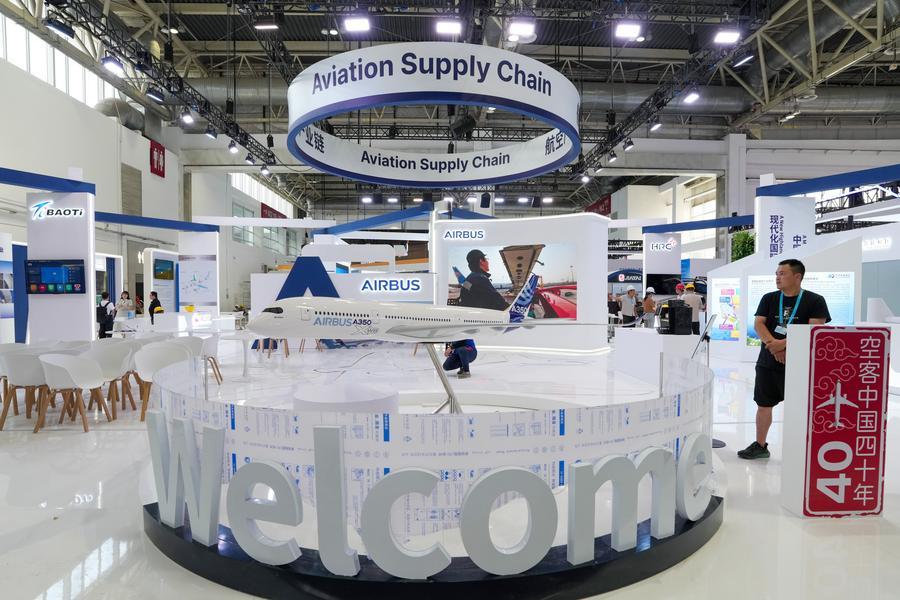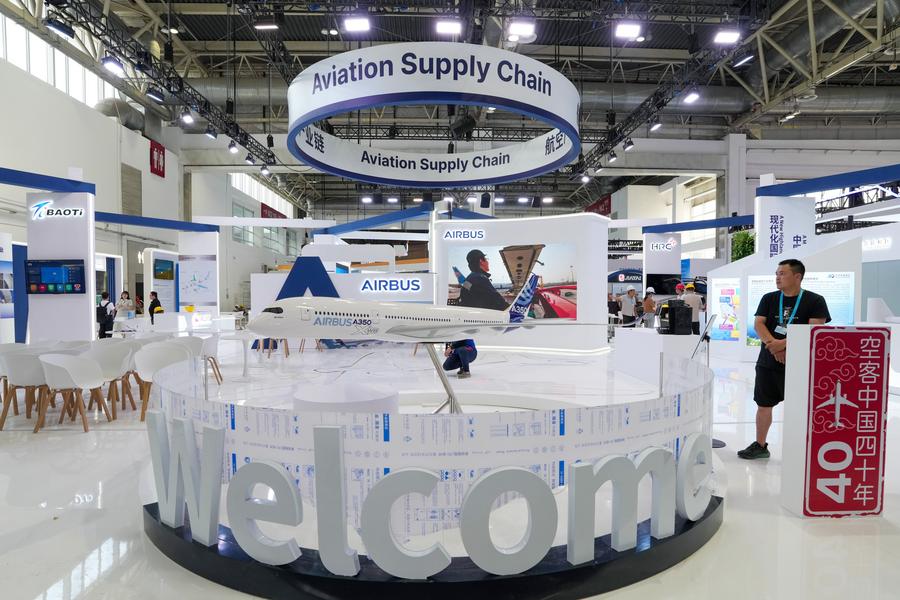
This photo taken on July 14, 2025 shows the booth of aviation supply chain at the advanced manufacturing section of the upcoming third China International Supply Chain Expo (CISCE) in Beijing, capital of China. The third China International Supply Chain Expo (CISCE), scheduled on July 16-20 in Beijing, is expected to focus on supply chains of advanced manufacturing, clean energy, smart vehicles, digital technology, healthy life and green agriculture. (Xinhua/Ju Huanzong)
Mendia said, CISCE offers a unique platform to promote new solutions, business models, and cooperative partnerships.
LISBON, July 15 (Xinhua) -- The Portugal-China Chamber of Commerce and Industry (CCILC) is looking to deepen supply chain partnerships with China through the country's first participation in the third China International Supply Chain Expo (CISCE), its secretary general, Bernardo Mendia, has said.
Speaking in a recent interview to Xinhua News Agency, Mendia, who also heads the Portuguese delegation to this year's CISCE slated to take place in Beijing from July 16 to 20, said the event offers a highly constructive platform for bilateral cooperation.
"This is not merely an exhibition," he said. It is "a key opportunity for Portugal and China to deepen economic and trade cooperation and expand supply chain partnerships."
The international trade system is currently facing numerous challenges, including rising protectionism, logistical disruptions, and geopolitical shifts. From CCILC's perspective, Mendia said, CISCE offers a unique platform to promote new solutions, business models, and cooperative partnerships.
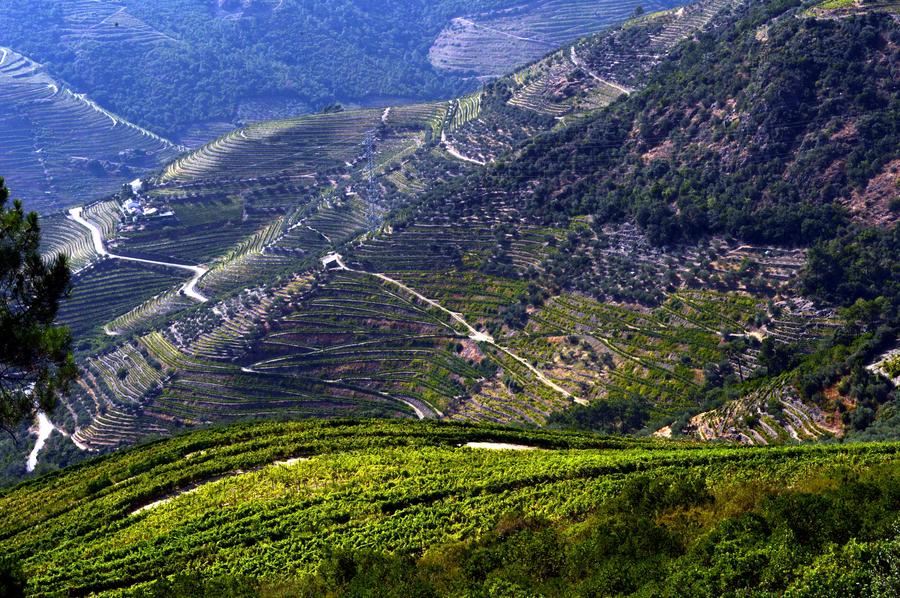
Photo taken on Sept. 7, 2016 shows the landscape of the Alto Douro River in the Alto Douro Wine Region, Portugal. The Alto Douro Wine Region in Northern Portugal, one of the major wine production areas in the country, is famous for producing unique Port wine in the world. (Xinhua/Zhang Liyun)
Portugal's participation this year, Mendia explained, is driven by a combination of factors. On the one hand, CISCE is a high-level international platform with global reach and strong influence, providing Portuguese enterprises with an important opportunity to connect with the Chinese market and enhance their visibility. On the other hand, the focus on supply chains comes at a crucial time.
The Portuguese delegation includes companies and institutions from sectors such as marine engineering, offshore energy, certification services, insurance, education investment, cross-border legal services, and the wine industry. "Portugal may be small in size, but our enterprises are highly internationalized," said Mendia. "We hope to use this opportunity to showcase Portugal's innovation capabilities in areas such as certification, energy, logistics, education, insurance, and legal consultancy."
Mendia also highlighted the potential for cooperation between Portugal and China in international transport. Both countries hold strategically important geographical positions, and the growing interconnectivity of their port, air, rail, and logistics infrastructure points to promising prospects.
In the context of China-Europe cooperation, he noted that there is still ample room for expansion, whether in maritime, rail, or air transport, to develop more efficient, intelligent, and environmentally friendly solutions.
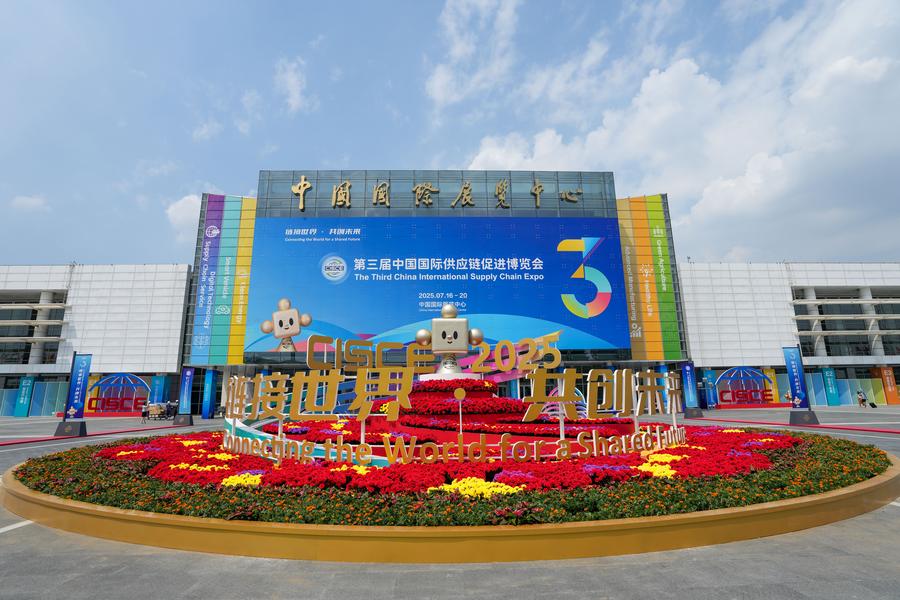
This photo taken on July 14, 2025 shows an exterior view of the venue for the upcoming third China International Supply Chain Expo (CISCE) in Beijing, capital of China. The third China International Supply Chain Expo (CISCE), scheduled on July 16-20 in Beijing, is expected to focus on supply chains of advanced manufacturing, clean energy, smart vehicles, digital technology, healthy life and green agriculture. (Xinhua/Ju Huanzong)
He described the expo's timing and relevance as positive, saying the event contributes to dialogue and cooperation at a time of heightened pressure on global supply chains.
He said that CISCE is a constructive space where business, economic, technological, and logistical linkages can be strengthened for the benefit of all stakeholders, especially end consumers.
Portugal's participation, he said, goes beyond showcasing products and services; it also aims to build bridges for dialogue and implementation of concrete projects.
According to China's Ministry of Foreign Affairs, bilateral trade between China and Portugal reached 9.28 billion U.S. dollars in 2024, marking a 6.6 percent year-on-year increase. Chinese exports to Portugal amounted to 6.11 billion dollars, up 5.5 percent, while imports from Portugal totaled 3.17 billion dollars, an 8.9 percent increase.
Mendia said Portugal attaches great importance to its economic and trade ties with China and hopes to play a larger role in the ongoing restructuring of global supply chains.
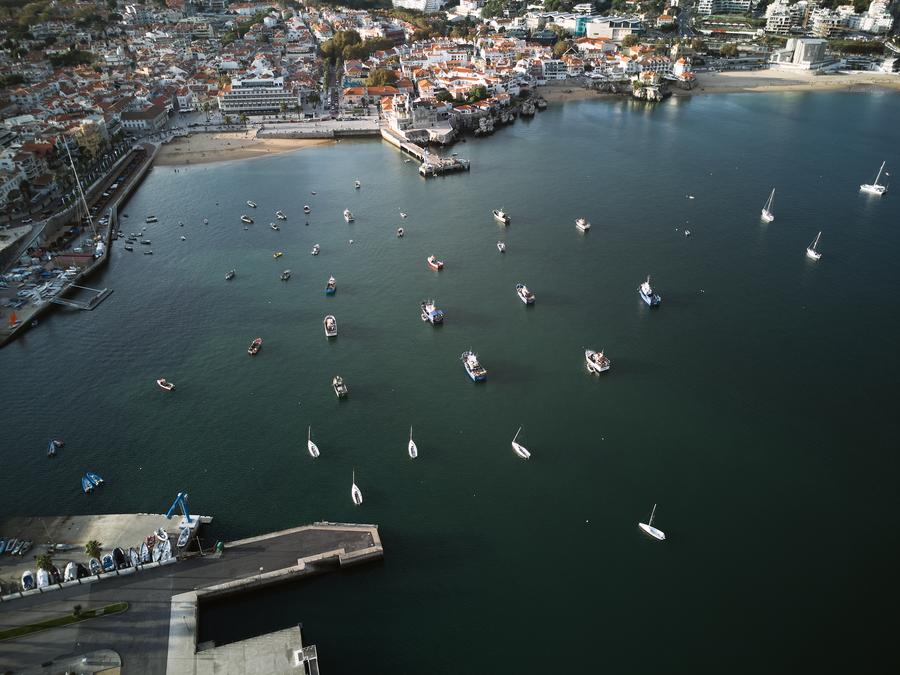
An aerial drone photo taken on Oct. 30, 2024 shows a view of a port in Cascais, Portugal. Cascais is one of the most popular tourist destinations in Portugal. (Xinhua/Meng Dingbo)
Noting that Portugal is a natural gateway linking Europe, Africa, and South America, he emphasized that the country, as an EU member, also offers a stable and transparent regulatory environment and legal framework that supports foreign investment. In recent years, Portugal has accelerated its development in green energy, digital technology, and smart manufacturing, building industrial clusters to support global supply chain collaboration.
Reflecting on Portugal's experience at CISCE, Mendia praised the event's professionalism and the support provided by the China Council for the Promotion of International Trade and the China Chamber of International Commerce.
He noted that the Portuguese delegation was impressed by the warm reception and strong backing from the hosts. (1 euro = 1.09 U.S. dollar)




 A single purchase
A single purchase








